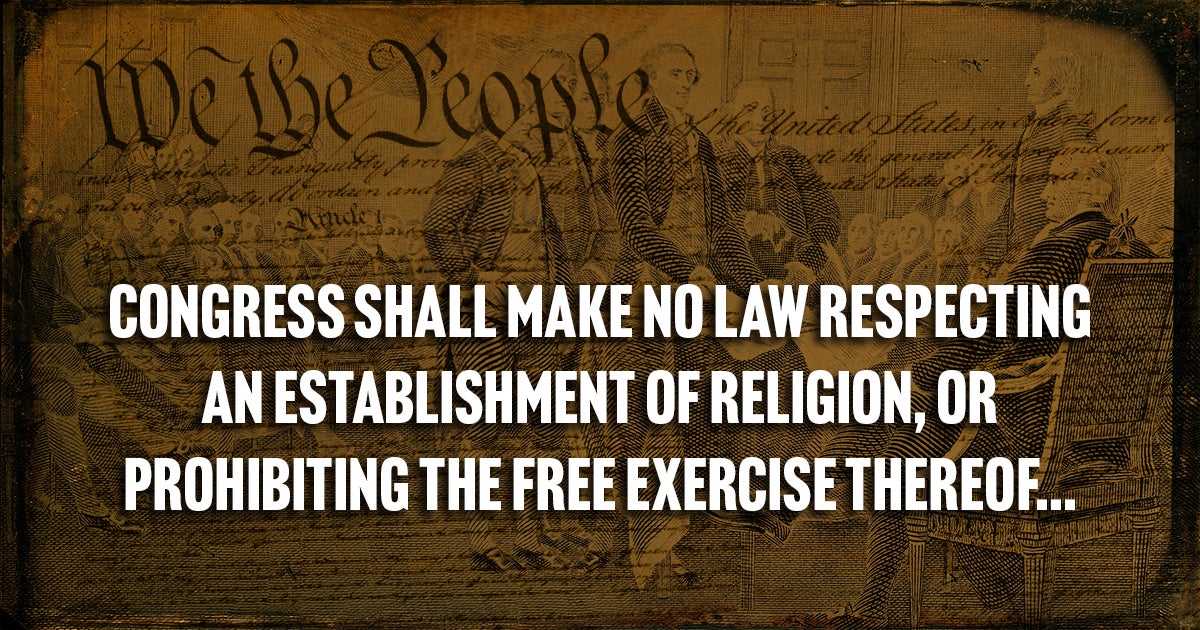
by Jayla Ward • 3 minutes
As we count down to America’s 250th Birthday, it’s important to take a step back and look at how our First Freedom has shaped every other freedom we are privileged to have.
Religious liberty isn’t an afterthought or an accommodation. It’s the First Freedom—the cornerstone of America’s founding philosophy. It is the first thing protected in the First Amendment to the U.S. Constitution for a reason.
Why? Because it’s the foundation.
It is the very backbone of every freedom. If we lose that, it’s only a matter of time before we lose all other freedoms.
Religious liberty goes beyond simply protecting your belief in God or lack thereof. It touches on a deeper issue: your conscience. It protects your right to freely adhere to your values and the beliefs and actions that flow from them.
Thomas Jefferson sums this up best through his all-important question: “Can the liberties of a nation be secure when we have removed their only firm basis, a conviction in the minds of the people that these liberties are the gift of God?”
The Founders understood that freedom of conscience is essential to all other rights in the First Amendment, such as speech, assembly, press and petition:
Congress shall make no law respecting an establishment of religion, or prohibiting the free exercise thereof; or abridging the freedom of speech, or of the press; or the right of the people peaceably to assemble, and to petition the Government for a redress of grievances.
The freedom to freely exercise your faith and the freedom of speech go hand in hand. To speak your mind, you have to be free to think. You have to be free to believe and reason. And, ultimately, you have to be free to express those thoughts verbally.
The freedom of assembly, press and petition hinge on the first two. How can you gather to discuss, advocate, or even write, if your conscience and beliefs are obstructed? Each of these is an outward expression of your inward reflection.
How can you gather together under the banner of different philosophies if you don’t even have the autonomy to think about them? Religious freedom protects your right to believe in ideas and work them out through open dialogue with others. Restricting those freedoms restricts growth, discourse and social advancement.
The freedom to live out your faith doesn’t just protect First Amendment rights. It’s also central to many of our civil, political, social and even economic liberties. That’s why totalitarian and radical regimes always target and restrict faith and religious freedom first.
In order to exert complete control, dictatorial regimes have to destroy religious liberty and the truth that our rights come from God—because they cannot tolerate allegiance to anything above the government. It was Benito Mussolini—the Italian fascist dictator of the 1930s—who once summarized totalitarianism: “Everything in the State, nothing outside the State, nothing against the State.”
The American Dream is grounded in political and civil rights, such as voting and electing leaders democratically. Without a solid foundation protecting religious freedom, the rest of the liberties we enjoy would crumble or be at the mercy of whoever holds political power.
If we look across the globe, there are ample examples of human rights abuses, totalitarianism, dictatorships, and more. At the heart of it all is the stifling of conscience, faith, and liberty.
A nation that fails to protect religious liberty is effectively denying citizens of the unalienable rights “endowed by their Creator.” It wrongly tells its citizens that the state is God, that government is the ultimate grantor of rights.
No version of the American Dream could ever exist in the absence of religious freedom. Without this First Freedom, all other liberties we consider so central to the American Dream would vanish.